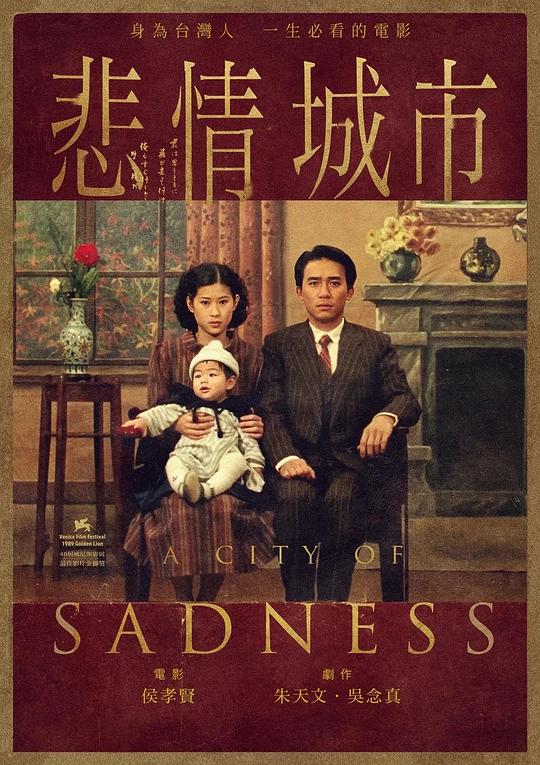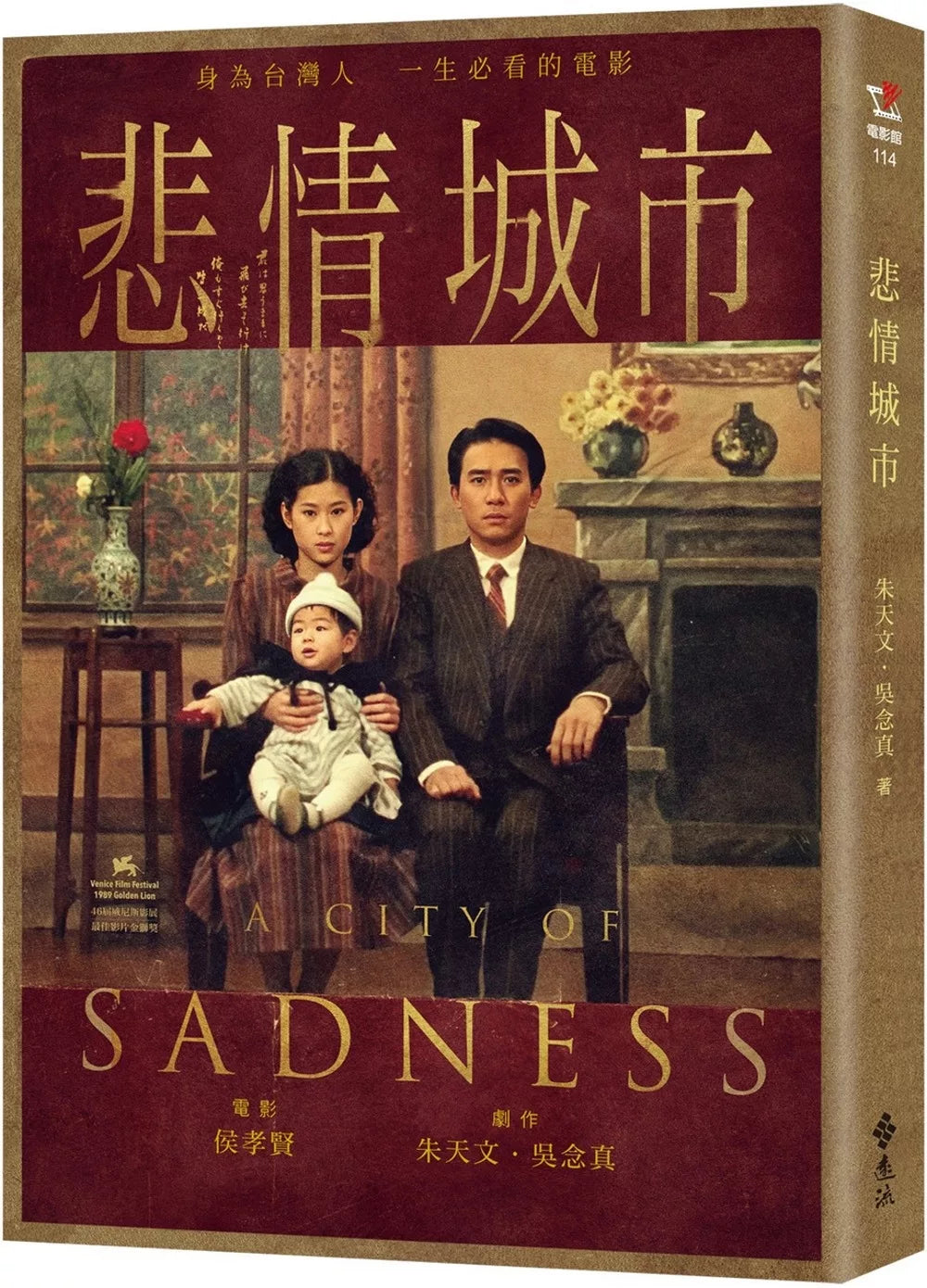1
/
of
2
A City of Sadness
A City of Sadness
Zhu Tianwen , Wu Nianzhen
Regular price
$21.99 USD
Regular price
Sale price
$21.99 USD
Unit price
/
per
Low stock
Couldn't load pickup availability
About Book
About Book
The Golden Lion Award for Best Film at the 46th Venice Film Festival. A must-see movie for Taiwanese people.
Stills / Stunning classic scenes connect the film's storyline and content. Plot profile / Using 13 questions to illustrate the film's origins, choreography, and filming process. / Preserving the director's creative process and providing clues for the screenwriting process. Script / The highly readable novel-like script showcases the unique charm of Wu Nien-jen's dialogue.
"A City of Sadness" abandons the delicate editing method and uses large-scale editing. It does not cut the smooth rhythm, but the accurate connection between the flavors in the large pictures. The theme of a movie is actually the entire flavor of the movie in the end. - Hou Hsiao-hsien
Hou Hsiao-hsien didn't intend "A City of Sadness" to be a historical commentary. His often-cited phrase, "Filming to reflect destiny," is actually more akin to a Seurat pointillist painting: resembling something, yet not entirely alike. Whether it's watercolor or pastel, oil or ink, each can only offer a vague, if glimpsed, glimpse into reality. Distance and imagery give "A City of Sadness" a unique place and perspective, allowing us to revisit that era. — Lan Zuwei, Chairman of the National Center for Film and Audiovisual Culture
On August 15, 1945, the Japanese Emperor announced his unconditional surrender in a radio broadcast. The hoarse-voiced announcement was secretly circulated on the main island of Taiwan.
When eldest brother Lin Wenxiong's mistress gave birth to a son, Keelung City experienced a power outage that night. Shadows dotted the streets in the candlelight as the woman gave birth to a son...
A port filled with coal smoke in the rain and mist, a city of tragedy. — Zhu Tianwen's script. Prologue
In the deep autumn of Jiufen, the mountains are covered with Miscanthus flowers, a vast expanse of white, like snow.
The image ends with Grandpa sleeping crookedly in his special rattan chair. The autumn sun is setting, and his messy hair is suddenly bathed in a golden glow. Fade out.
Subtitles: In December 1949, the mainland fell into disarray, and the Nationalist government relocated to Taiwan, establishing Taipei as its temporary capital. — Wu Nien-chen script. 91 scenes
Movie Poster and Book Cover: Designer: Chen Shichuan Classic Movie Stills: Stills by Chen Shaowei
Stills / Stunning classic scenes connect the film's storyline and content. Plot profile / Using 13 questions to illustrate the film's origins, choreography, and filming process. / Preserving the director's creative process and providing clues for the screenwriting process. Script / The highly readable novel-like script showcases the unique charm of Wu Nien-jen's dialogue.
"A City of Sadness" abandons the delicate editing method and uses large-scale editing. It does not cut the smooth rhythm, but the accurate connection between the flavors in the large pictures. The theme of a movie is actually the entire flavor of the movie in the end. - Hou Hsiao-hsien
Hou Hsiao-hsien didn't intend "A City of Sadness" to be a historical commentary. His often-cited phrase, "Filming to reflect destiny," is actually more akin to a Seurat pointillist painting: resembling something, yet not entirely alike. Whether it's watercolor or pastel, oil or ink, each can only offer a vague, if glimpsed, glimpse into reality. Distance and imagery give "A City of Sadness" a unique place and perspective, allowing us to revisit that era. — Lan Zuwei, Chairman of the National Center for Film and Audiovisual Culture
On August 15, 1945, the Japanese Emperor announced his unconditional surrender in a radio broadcast. The hoarse-voiced announcement was secretly circulated on the main island of Taiwan.
When eldest brother Lin Wenxiong's mistress gave birth to a son, Keelung City experienced a power outage that night. Shadows dotted the streets in the candlelight as the woman gave birth to a son...
A port filled with coal smoke in the rain and mist, a city of tragedy. — Zhu Tianwen's script. Prologue
In the deep autumn of Jiufen, the mountains are covered with Miscanthus flowers, a vast expanse of white, like snow.
The image ends with Grandpa sleeping crookedly in his special rattan chair. The autumn sun is setting, and his messy hair is suddenly bathed in a golden glow. Fade out.
Subtitles: In December 1949, the mainland fell into disarray, and the Nationalist government relocated to Taiwan, establishing Taipei as its temporary capital. — Wu Nien-chen script. 91 scenes
Movie Poster and Book Cover: Designer: Chen Shichuan Classic Movie Stills: Stills by Chen Shaowei
Publication Date
Publication Date
2023-02-10
Publisher
Publisher
遠流
Imprint
Imprint
Pages
Pages
264
ISBN
ISBN
9789573299615
share



